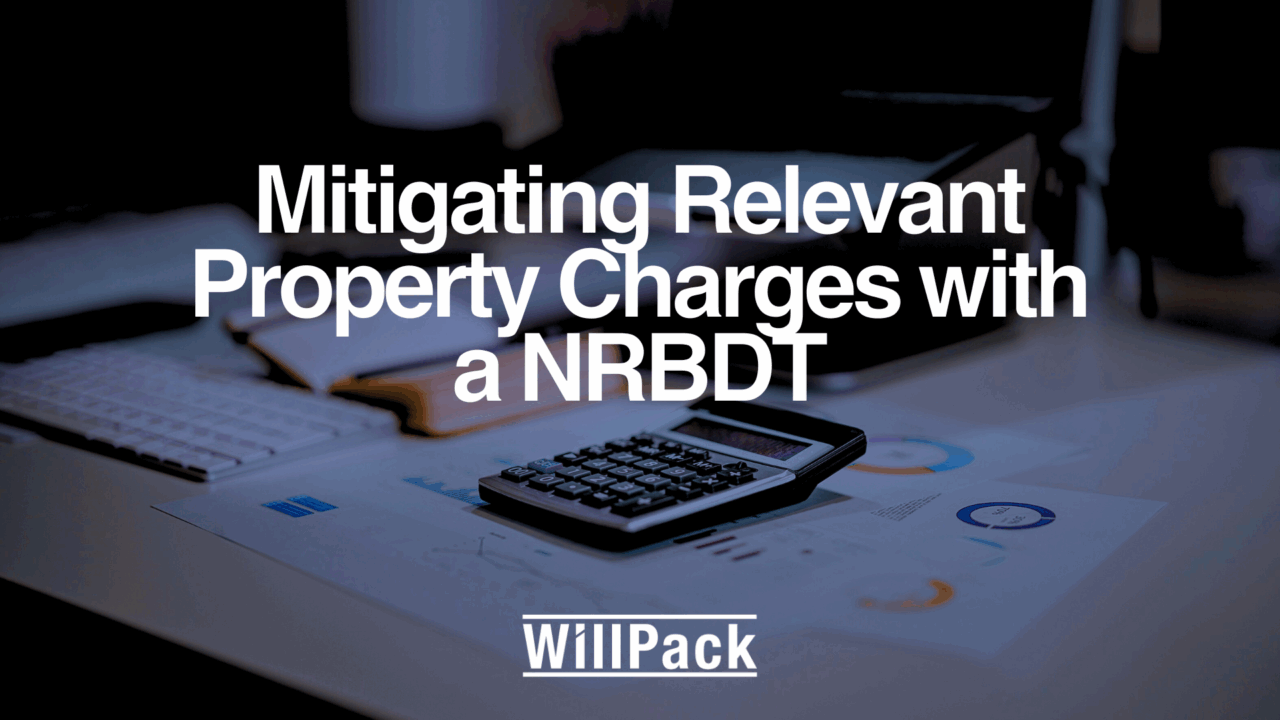For couples concerned about the tax costs of holding assets in a discretionary trust, a Nil Rate Band Discretionary Trust (NRBDT) remains a useful planning tool. This article explains how using a NRBDT on the first death in a couple can help with mitigating relevant property charges that apply to trusts.
What is a Nil Rate Band Discretionary Trust?
A NRBDT is a discretionary trust set up on death via a will, designed to receive assets up to the value of the nil rate band (NRB). In a will, this is often described as “the maximum I can give without inheritance tax being payable” or similar wording.
The NRB is the threshold up to which an estate is not subject to IHT, currently £325,000 per person. Assets passing to a spouse or civil partner are generally exempt from IHT, and any unused NRB can be transferred to the surviving spouse’s estate.
A discretionary trust gives the trustees flexibility to decide how, when, and to whom the trust assets are distributed among a class of potential beneficiaries. This is useful for protecting assets where there are concerns on beneficiaries inheriting outright or provide flexibility or where future circumstances are uncertain.
The Relevant Property Regime
Discretionary trusts fall under the relevant property regime. This means the trust capital is not treated as owned by the beneficiaries, but the trust is subject to anniversary (ten-year) and exit charges on the value of assets above the NRB. These charges are complex to calculate, but as a rule, they will not exceed 6% of the value above the NRB.
Mitigating Relevant Property Charges: How a NRBDT Can Help
There is a potential IHT benefit in using a NRBDT where a couple wishes to pass their estate into a discretionary trust on second death. If the entire estate passes to the surviving spouse and then into a discretionary trust on second death, the full value of the combined estate will be subject to relevant property charges.
By including a NRBDT in the will of the first spouse to die, assets up to the NRB can be put into a trust on first death. This trust is treated as a separate entity for IHT. The surviving spouse can be included as a potential beneficiary and benefit at the trustees’ discretion.
On the second death, the remainder of the estate can be settled into a separate discretionary trust. The advantage is that each trust benefits from its own NRB for the purposes of the relevant property regime. This means the value of assets in each trust subject to charges is limited to the NRB, mitigating relevant property charges that will apply.
Example
Let’s look at Mr and Mrs Green, a married couple with a combined estate of £650,000. They want to benefit each other and protect their estate for their son, who has alcohol issues and therefore will use a second death discretionary trust.
Mrs Green dies first, then Mr Green two months later.
Scenario 1: No NRBDT on first death
- No IHT is due on either death due to the spousal exemption and the estate being within their combined NRBs.
- On Mr Green’s death, the combined estates pass into a discretionary trust for their son and his descendants.
- Ten years after Mr Green’s death, the trust is worth £800,000. The maximum ten-year charge is 6% of the value above the NRB, which is £27,000.
Scenario 2: NRBDT used on first death
- On Mrs Green’s death, £325,000 passes into a NRBDT. No IHT is due as this is within her NRB.
- On Mr Green’s death, his estate passes into a separate discretionary trust.
- Ten years later, each trust is worth £400,000. The maximum ten-year charge is 6% of the value above the NRB, which is £4,500 per trust (£9,000 total).
By using two trusts, the Greens ensure each trust is assessed separately for IHT, and the value subject to the relevant property regime is split, reducing the overall cost of periodic charges.
Conclusion
Incorporating a NRBDT into the will of the first to die can significantly mitigating relevant property charges that will apply. By splitting the estate across two trusts, the overall cost of periodic charges can be reduced. While NRBDTs may not suit everyone, they remain a valuable tool in the right circumstances.
If you have subscribed to our Quiz Membership 2025, please find this article’s quiz here. You must be signed into the partner area of our website to access this.

